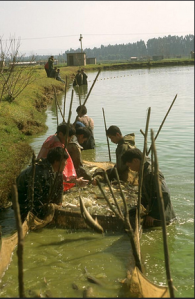Family farming is inextricably linked to national and global food security. As the International Year of Family Farming comes to a close I want to mention climate change and family livelihood from the land.
Did you know that there are 570 million farms around the world and 500 million of them are owned by families?
These families live in both developing and developed countries.
Did you know that floods that occurred every 100 years are predicted to occur every 25 to 50 years?
So it makes sense to not only acknowledge the work these families do, but to also think about the ways we can continue to support them to continue feeding themselves and us.
When you plan a unit of inquiry around food, add a global perspective and look at families, farming, affect of the climate and our connections. In this way we can foster insight, understanding, empathy and the learning needed to find sustainable ways to overcome the challenges that face us.
Take a Virtual Farm Visit linking to the Australian Curriculum Year 4 – 7 Technologies Curriculum and Year 4 and 5 Geography
Activities for Investigating agriculture in Australia can be found at AgriFoods
Behind the brands explores the connection between big companies, sugar and land grabs
Food for thought is a game for learning about small scale farmers and fairness in the global food system
Take action at Aussi Smart
-Keep me posted with your units centred around food. Dig deeper, think wider and send me your global reach with your unit of inquiry.



